
Capital Briefs | Jackson takes oath as new chief prosecutor
WINDOW ROCK
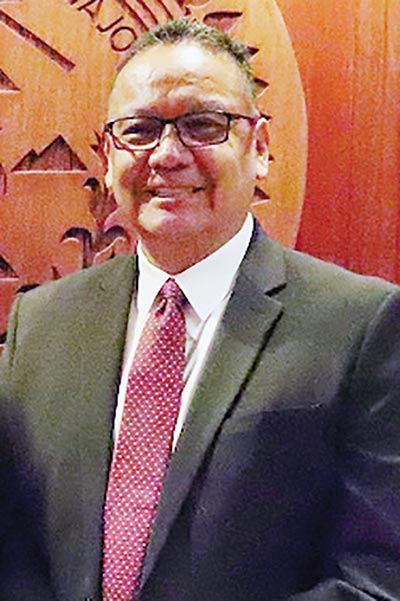
Vernon L. Jackson Sr.
Vernon L. Jackson Sr. took the oath of office on Wednesday to serve as the new chief prosecutor, according to the president’s office.
Chief Justice JoAnn Jayne administered the oath to Jackson during a ceremony held at the Navajo Nation Department of Justice.
Jackson is an enrolled member of the Navajo Nation from Chinle. Since July 2021, Jackson has served as acting chief prosecutor.
He has a bachelor’s degree from Boston University in interdisciplinary studies and a master’s of business from Bellevue University.
His has served more than 20 years in federal law enforcement service as a special agent. He has been assistant director of the U.S. Environmental Protection Agency’s Criminal Investigation Division. He also served more than 10 years with the Navajo Division of Public Safety. He is a member of the Navajo Nation Bar Association.
Prior to taking the oath, said he looks forward to making improvements within the Navajo Nation justice system.
“I am honored for this opportunity to serve the Navajo people,” he said, “and I am committed to ensuring the prosecution of crimes in a manner that effectively promotes public safety.”
Doreen McPaul, attorney general, said, “Mr. Jackson has dedicated his career to seeking justice by holding perpetrators accountable and helping victims. His experience and expertise within the public safety sector will serve the Navajo people well.”
PNM crew helps out ‘Light Up Navajo’
ALBUQUERQUE – A Public Service Company of New Mexico line crew recently traveled to the Shiprock area volunteering in a utility collaboration project called “Light Up Navajo.”
More than 14,000 families do not have electricity on the Navajo Nation. The Nation, American Public Power Association, and Navajo Tribal Utility Authority launched the “Light Up Navajo” project in 2019 to energize homes that have never had power.
PNM was one of the electric utility companies from around the country that proudly participated in this life-changing project. Other utility companies came from Arkansas, Arizona, Delaware, California, Connecticut, North Carolina, New Mexico, Ohio, Texas, Utah and Washington, D.C.
This year, the 11-week “Light Up Navajo” initiative worked to connect 300 Navajo homes to the electric grid for the first time.
Five journeyman linemen represented PNM and worked alongside NTUA crews and other volunteer utility linemen, to construct and install new power poles and run new distribution lines to energize existing homes that have never had electricity.
Since the “Light Up Navajo” project started in 2019, nearly 7,000 Diné homes have been connected to the power grid.
Tuba City doctor receives prestigious award
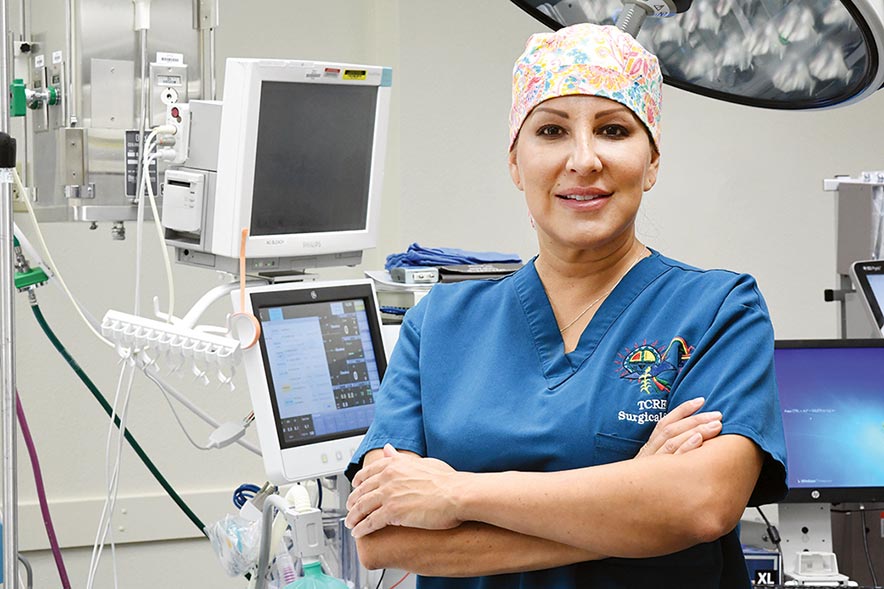
Courtesy photo
Jennifer Whitehair
TUBA CITY – On May 7, Jennifer Whitehair, a Navajo doctor at Tuba City Regional Heath Care Corp., received a prestigious award, the American College of Obstetricians and Gynecologists Outstanding American Indian/Alaska Native Women’s Healthcare Clinician Award, in San Diego.
Dr. Whitehair is a board-certified obstetrician and gynecologist at the Tuba City hospital where she has worked for the past 16 years.
During the height of the COVID-19 pandemic, Dr. Whitehair did more than just see patients – she coordinated with off-reservation organizations to deliver masks, hand sanitizer, food, cleaning products, and other supplies to the community.
In December, she testified at the White House’s Maternal Health hearing organized by Vice President Kamila Harris, about improving maternal morbidity and mortality in the Indigenous community.
Dr. Whitehair said, “It is a privilege to serve the women of the Navajo Nation and to be their obstetrician and gynecologist. I am thankful for their trust and acceptance in the community.
“I hope to continue to advocate for Indigenous women’s health for many more years to come,” she said.
Dr. Whitehair holds a bachelor’s degree in microbiology professions from Northern Arizona University, a medical degree from the University of South Dakota, and OB/GYN residency at the University of Arizona.
She is married and has two daughters.
Diné becomes U.S. District Court judge
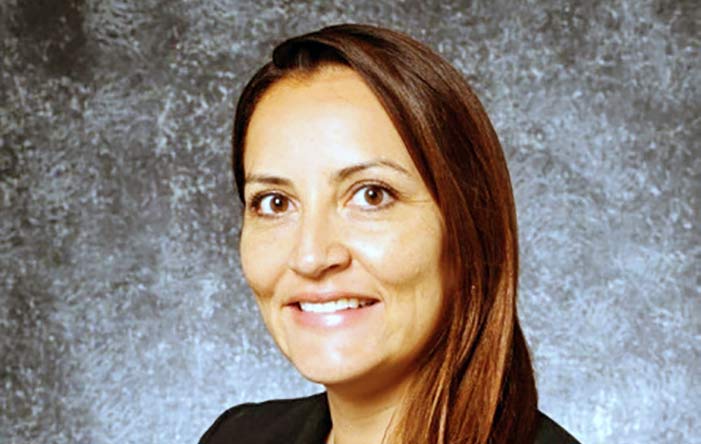
Sunshine Suzanne Sykes
WINDOW ROCK – Sunshine Suzanne Sykes, an enrolled member of the Navajo Nation from Tuba City, was confirmed by the U.S. Senate on Wednesday to serve as the U.S. District Court judge for the Central District of California.
Sykes becomes the first Native American, Article III judge in California, the first Article III judge from the Navajo Nation, and the fifth Native American Article III judge actively serving in the country.
She was nominated by U.S. President Joe Biden.
Since 2013, Sykes has served as California Superior Court judge on the Superior Court of Riverside County.
She received her law degree from Stanford Law School in 2001 and her bachelor’s from Stanford University in 1997.
Mark Macarro, first vice president of the National Congress of American Indians, said, “Judge Sykes’ extensive knowledge and experience are vitally important for the federal judiciary, particularly in California where countless federal Indian law issues arise among the more than 100 tribal nations within the state.”
President Jonathan Nez said, “We will continue to pray for her continued success as she serves in the U.S. District Court and we thank her for being an inspiration to our young Navajo people.”
Failing septic, solid waste systems concern delegates
WINDOW ROCK – Navajo Nation Council delegates are concerned about failing septic and solid waste systems in households across the Navajo Nation, according to the speaker’s office.
These failures are causing health risks during the COVID-19 pandemic, the speaker’s office said.
Delegate Kee Allen Begay Jr. said he has 169 statements from households with failing septic or solid waste systems from Tachee/Blue Gap, Many Farms, Nazlini, Tselani/Cottonwood, and Low Mountain chapters.
The Indian Health Service and Office of Environmental Health and Engineering requested the GPS latitude and longitude for each home to be considered for service.
The chapters have requested the office to evaluate, re-engineer or replace these failing systems, which affect hundreds of Navajo families.
Begay said, “This growing sanitary situation is becoming a serious environmental contamination issue that impacts the health and safety of the Navajo people.”
According to a fiscal year 2021 report, more than 15,000 Navajo homes need sanitation facility improvement.
The IHS has paid for pump trucks for certain communities but failed septic systems have not received service.
\Speaker Seth Damon said, “This is a health emergency during the COVID-19 pandemic to be addressed by Indian Health Service Director Roselyn Tso and the Interior Department.”
The delegates asked that the 169 applications be approved and further outreach to communities be done to solve this matter immediately.



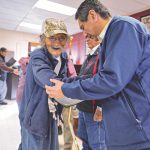
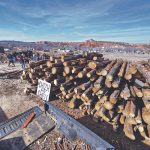



 Highway 264,
Highway 264, I-40, WB @ Winslow
I-40, WB @ Winslow